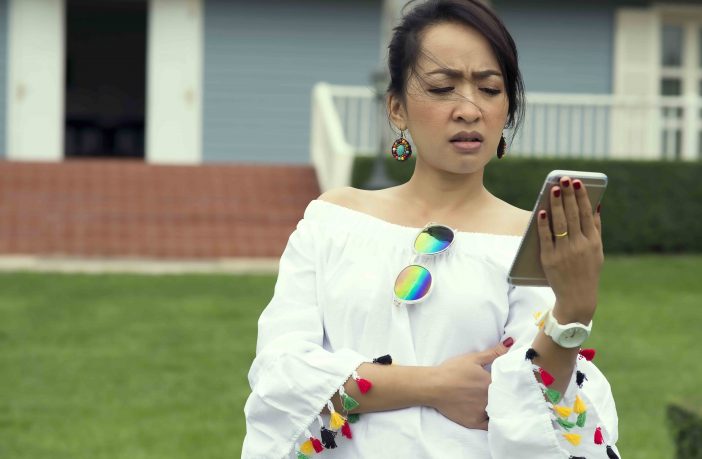Creating Facebook is a project run by Philip Seargeant and Caroline Tagg of The Open University’s Applied Linguistics and Literacies (ALL) Research Group. The pair collaborated with us on a Twitter and Facebook poll as part of Brainteaser Month which asked how people respond to feeling offended on Facebook.
You can see the polls and ensuing conversations below – here’s how it looked on Twitter:
Our thanks to #OUAcademics @Carotagg and @Philipseargeant for helping us with today’s poll based on their ‘Creating Facebook’ research:
It’s easy to say the wrong thing on social media – how would you respond if a friend offended you on Facebook?#BrainteaserMonth
— The Open University (@OpenUniversity) January 22, 2018
and on Facebook:
Overwhelmingly, across both platforms, people voted to turn the other cheek, agreeing that social media wasn’t the place to vent in this way. This may to surprising to those of you who spend a good deal of time on social media. We spoke to Drs Caroline Tagg and Philip Seargeant about the motivations behind this behaviour:
Offending opinions on Facebook
It’s a very obvious point, but social media is based on social relations. Because of this, the way people react to what they read on Facebook is closely tied up with the relationships they have with the people who post it. Your Facebook friend list is made up of a very diverse bunch of connections you’ve collected over time. And it’s likely to include an equally diverse selection of opinions and values. So differences of opinion are almost inevitable.
But your friends list is also mainly people you have pre-existing relationships with – relationships which you probably don’t want to jeopardize by getting into a public spat. This means that people usually aren’t too keen to directly confront others about opinions they disagree with. Instead they just ignore the offending opinions, or quietly mute or block the sender.
Most tend to ‘keep the peace’ on Facebook
In their research, Drs Tagg and Seargeant found that Facebook users created their own ‘filter bubble’:
“Rather than directly confronting people, they would either ignore posts they disagreed with, hide them, or occasionally un-friend people. In this way they themselves created something similar to a filter bubble effect, by constructing a news feed which only contained opinions with which they agreed.”
This isn’t a blanket rule of course. Facebook’s population is now over two billion – equivalent to the entire population of the planet only eighty years ago! So practices can differ considerably. But on the whole, people try to maintain a certain cordiality on Facebook – in stark contrast to a more public social media platform such as Twitter.
Find out more:
Read Philip Seargeant and Caroline Tagg’s article about why people don’t quit Facebook
This book on Taking Offence on Social Media was written by Philip Seargeant and Caroline Tagg.
Watch Philip Seargeant debate ‘fake news’ with Lecturer in Law, Hugh McFaul.



